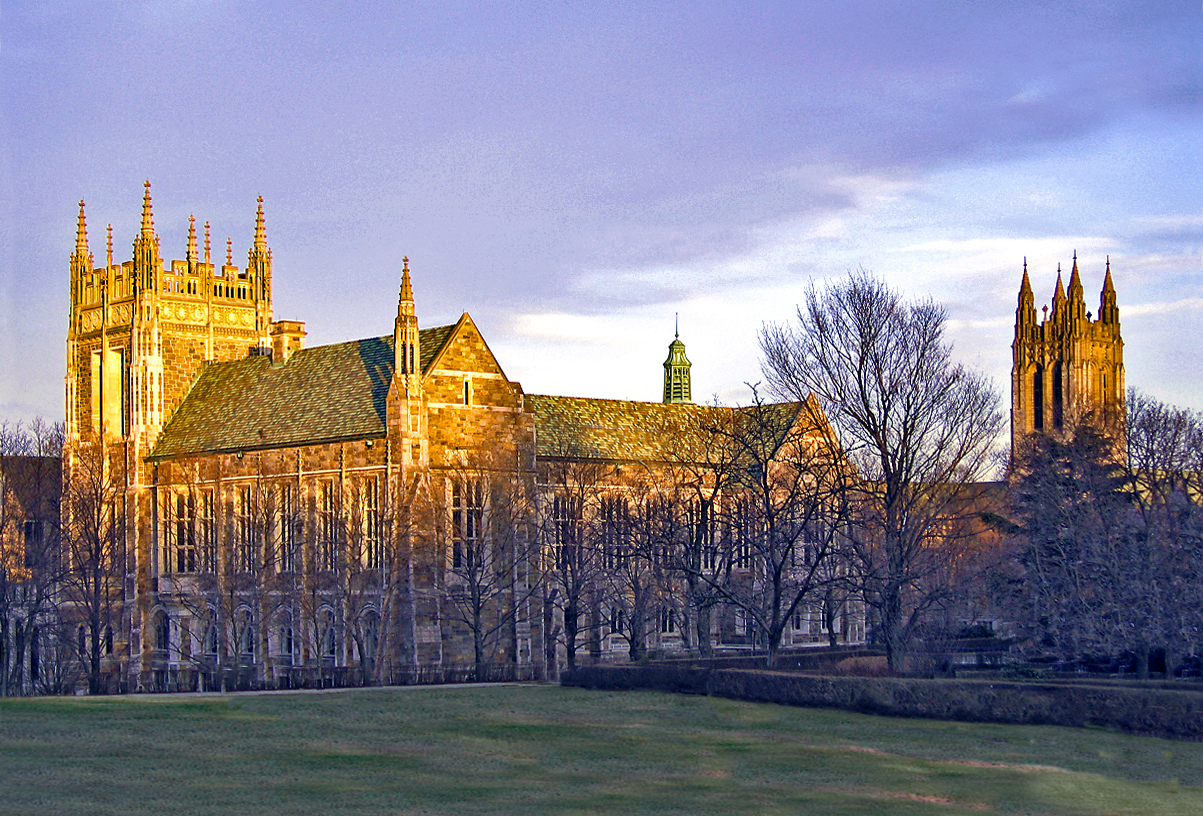A campus perched on a hill in the outskirts of Boston, with Neo-Gothic buildings made of white stone, Boston College (BC) is a Catholic Jesuit school that has a liberal arts curriculum and a relatively smaller student body, compared to large state schools. It is over two and half centuries old, and ranks as one of the top 40 universities in the US. When accepting undergraduate students, the admissions office at BC considers a variety of factors that other prestigious universities look for as well, such as high SAT scores (high 600’s to 700’s in each section), extracurricular activities (with a focus on leadership positions held), application essays, etc. However, as part of the Jesuit aspect of the university, Boston College highly values service to humanity, whether it means impacting one’s own community or engaging in efforts to help the world in a broader sense.
One will immediately realize upon starting their studies at Boston College that many of the activities on campus, from clubs to school-organized trips, have a focus on serving humanity. There are even optional courses where students volunteer in Boston throughout the semester as part of their class. Spirituality is also something that BC tries to foster, by organizing “Espresso Your Faith” week each year where there are a variety of religious events on campus (including free coffee and hot chocolate!), having meditative trips outside of campus (i.e. “48 Hours”) where students reflect on their lives, and having two theology courses as part of the core curriculum, among other things. While those who prefer to, can easily avoid religious activities, anyone will surely appreciate the self-reflective and critical thinking aspects of the BC education, which helps students develop as people rather than simply giving them a diploma.
As for the schools within Boston College, like most universities, the largest is the School of Arts and Sciences (A&S), while the most prestigious school (and the hardest to get into) is the Carroll School of Management. There are also schools of teaching and nursing, while, conspicuously so, there is no school of engineering. However, students interested in the natural sciences can choose from a variety of options in A&S. A&S contains popular majors such as political science, economy, biology, theater, etc. while also including more specific majors such as Russian Studies or Romantic Languages and Literatures. It is possible for students to choose more than one major and/or minor.
Most colleges in America that use a semester calendar either require students to take four classes per semester, each worth four credits (a total of 16 credits per semester) or five classes that are each worth three credits (totaling 15 credits). At Boston College, students need 120 credits to graduate and most classes are worth three credits. Therefore, students typically take five classes per semester. It seems to be the case that, colleges, which require five classes per semester, are the ones with bigger core curriculums. Boston College is surely one of those schools, usually requiring doubles of everything in the core curriculum (i.e. history, natural sciences, philosophy, social sciences).
There are a large variety of dorm options at BC, with room types that vary from doubles to suites, with kitchens or without them. It should be noted that many students are not offered dorms in their third year, though off-campus housing within walking distance of the campus is easy to find. Many students study abroad during their junior year, therefore demand for housing is lower among third-year students.
While BC is a great school, as anywhere, college is what one makes of it. Given the smaller-size student body (around 9,000 undergraduates), it is easier for students to connect with their professors and be mentored—but students are expected to show initiative as well. Class sizes are usually small (with half of the classes at BC having less than 20 students, and most of the other half having less than 50), so students are not lost among a crowd but are given a voice to speak and to be interactive in their classes. One can receive a great education, and receive specialized attention from professors, be a member of many clubs, attend talks given by some of the most respected people of their field and form great friendships that can last a lifetime. One should only always keep in mind that in life and in college, one has to seek out the opportunities offered in order to enjoy their advantages.

